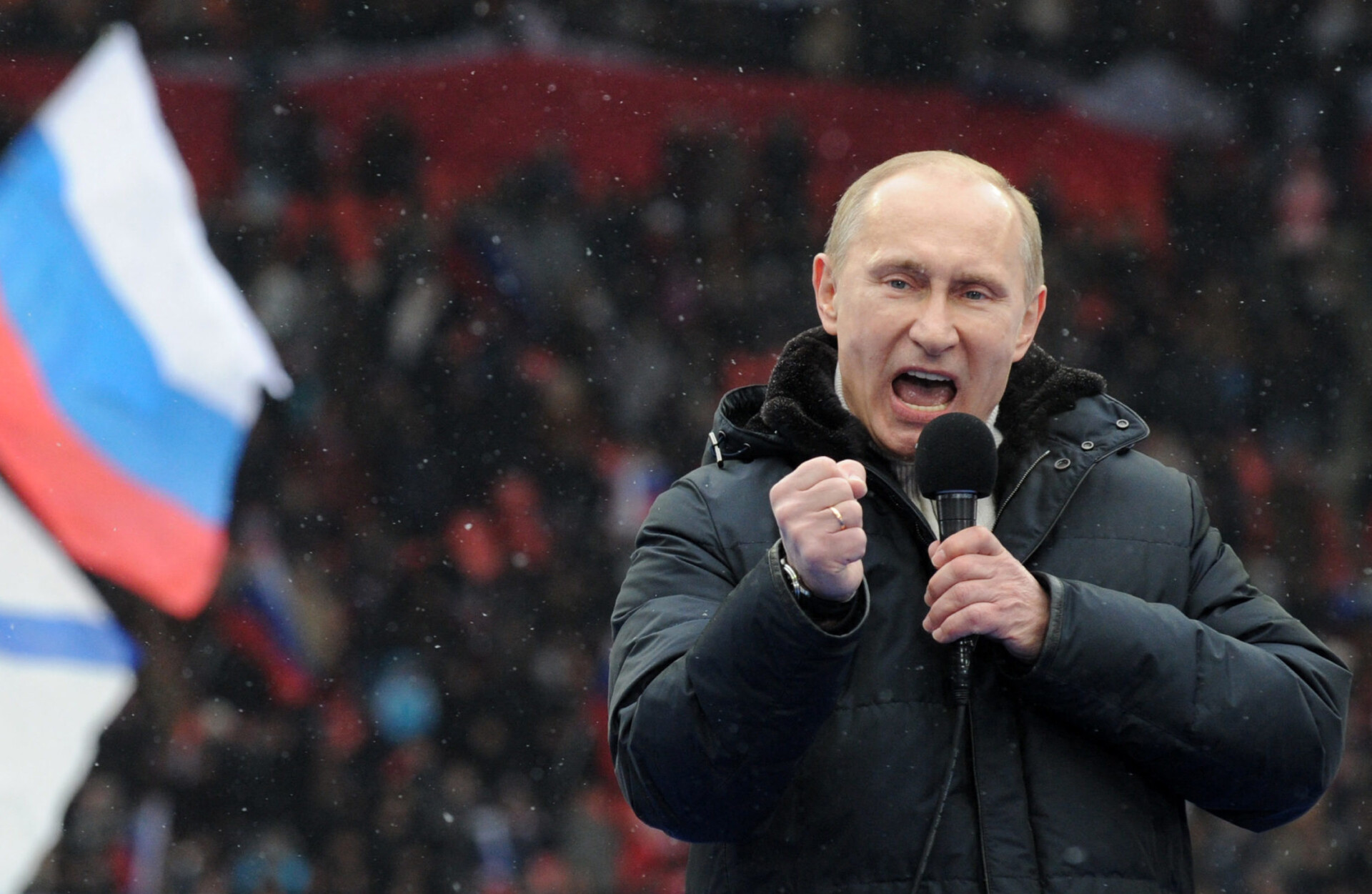On August 16, 1999, the Russian parliament approved a new prime minister. This was then-President Boris Yeltsin’s fifth in just 16 months and, perhaps unsurprisingly, a confused parliamentarian mistakenly called the new premier by the name of his predecessor. There was seemingly no need to recall the name of yet another dull bureaucrat who would most likely pass quickly and unremarkably through the revolving door of Russian politics.
Fast forward 25 years and Vladimir Putin’s name is forgotten by no one. Imitating another who had once been derided as a ‘gray blur’, the Russian President’s rule looks set to match the length of Joseph Stalin’s. That is not the only sign of the Stalinist tendencies of this modern-day vozhd. Political opponents are murdered, while sabotage and destabilization operations strive to bring the countries on Russia’s periphery into its orbit. Tens of thousands of Russian and Ukrainian lives have been claimed, and to speak the truth of Moscow’s belligerence paradoxically carries a Soviet-style prison term for spreading ‘misinformation’.
There is no sign that any of this will abate soon. The domestic opposition is divided, while the war is lucrative for many ordinary Russians for whom peacetime offered only poverty. Besides, Putinism will outlive the President himself. While domestic opponents and even foreign governments grudgingly accept that change can come only after his death or retirement, the system of cronyism and corruption that Putin has sustained and encouraged is so embedded that it will be difficult to break even then.
Looking ahead, Putin’s ideal scenario of a Donald Trump administration cutting aid to Ukraine appears less likely following Kamala Harris’s emergence as the Democratic presidential candidate. Adding to Volodya’s growing list of headaches is Russia suffering its first foreign invasion since World War II, thanks to Ukraine’s incursion into Kursk. Nevertheless, with Ukraine still losing territory in the Donetsk region, the chances are that Putin will eventually bludgeon Kyiv into a shabby compromise, potentially keeping the Donbas and Crimea for himself in return for the rest of Ukraine being permitted to join the EU and NATO or remain neutral, protected by security guarantees. That will be sold as a victory to a Russian public hungry for any success.
With the constitution permitting him to rule until 2036 and open to further manipulation, Putin will most likely remain in office until his own death. At that juncture, a formal process will lead to elections. However, given the pool of likely candidates, it is the system that will win: 77% of 2019’s government were siloviki, or from the security forces. Alternatively, should he decide that dictatorial rule is a young man’s game and opt for a comfortable retirement, he would hand over to a carefully groomed successor selected for their commitment to keeping both their predecessor and his legacy alive.
One hopes for better, of course. Yet Putin always was the death of hope. More specifically, he was the death of a hope that Russia could become, in the words of a man who perished this year in the sub-zero temperatures of an Arctic penal colony, a ‘happy’, ‘free’ and ‘normal’ country.
The Russian President once remarked that the KGB taught him little that he had not already learned scrapping on the streets of Leningrad. ‘There is no retreat,’ he said. ‘It is necessary to carry it through to the end. You didn’t get involved unless you were prepared to see it through.’ His grip on power still tight, there is every indication that Putin will also see ruling Russia through to the very end.











Join the discussion
Join like minded readers that support our journalism by becoming a paid subscriber
To join the discussion in the comments, become a paid subscriber.
Join like minded readers that support our journalism, read unlimited articles and enjoy other subscriber-only benefits.
Subscribe